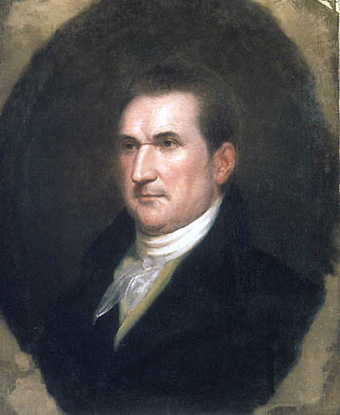Last updated: June 17, 2015
Person
Henry Dearborn

NPS
Henry Dearborn was a doctor in New Hampshire at the outbreak of the American Revolution. Upon hearing of the events at Lexington and Concord, he led his militia company to Cambridge, Massachusetts, and joined the American army. Dearborn and his company were present at some of the most key moments of the American Revolution, including the Battle of Bunker Hill, the Siege of Fort Ticonderoga, the Battles of Saratoga, the winter encampment at Valley Forge, and the surrender of General Cornwallis at Yorktown. Dearborn was finally discharged from the army in July 1783 after eight years of service.
But Dearborn’s military career was just beginning. Following the Revolutionary War, Dearborn settled in Maine and was made brigadier general of the militia in 1787, and a major general in 1789. This military service increased his public profile, and he was elected to the House of Representatives for two terms, from 1793 to 1797. His political career took off from here as well. He was appointed Secretary of War by President Thomas Jefferson in 1801, a position he held until the end of Jefferson’s administration in 1809. He was appointed to collect duties from the port of Boston under the administration of President James Madison, a position he held until the War of 1812 broke out and he was appointed senior major general of the United States Army.
Although Dearborn proved to be a capable militia commander, his grasp over the entire northeastern sector of war proved to be flawed. Dearborn initiated assaults on Canada and had moderate successes in York and at Fort George in 1813, but his inability to reinforce Brigadier General William Hull in Detroit proved fatal to his military career. Dearborn was recalled from the field on July 6, 1813, and he served out the rest of his military service in an administrative role.
After Dearborn was honorably discharged from the army on June 15, 1815 following the conclusion of the war, Madison nominated him to be reappointed as Secretary of War. However, his mediocre record in the most recent war caused his nomination to be rejected by Federalists in the Senate. He served briefly as a foreign minister to Portugal before retiring to his home, near Boston.
